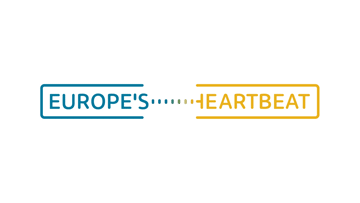Different types of R&D incentives
R&D projects can count on numerous forms of financial support. There are many programs allocating R&D grants, interest-reduced loans, and special partnership programs.
Research and development (R&D) is considered to be among the most important areas for the development of the German economy. Industry and the public sector have made a commitment to spend around 3.5 percent of national GDP per year on R&D activities until 2025.
R&D incentives programs
R&D incentives programs generally provide money for R&D project personnel expenditure. Other costs for instruments and equipment may also be eligible if they can be clearly assigned to the relevant R&D project (if such instruments and equipment are used beyond the lifetime of the R&D project, only the depreciation costs for the duration of the R&D project are considered eligible).
How to profit from public R&D spending
To participate in R&D funding programs, companies must define an R&D project with clear objectives and a fixed time line. The project application should highlight the innovative character of the project and the technological risks involved.
An application for R&D funding also has to set out a commercialization plan, detailing how research results will be transformed into products, processes or services which generate additional turnover and/or employment in the region where the R&D project is located.
The total amount of incentives a project may receive depends on…
-
…the size of the company (small, medium-sized, or large),
-
…whether the project is conducted in cooperation with other companies or research institutes,
-
…and the research category of the project. The research category expresses the scope of the intended project.
Research categories
There are three basic research categories:
• fundamental research (experimental or theoretical work aimed at gaining new knowledge)
• industrial research (research with a specific practical objective aimed at improving existing products, processes, or services)
• experimental development (research aimed at producing drafts, plans, and prototypes)
![[Translate to 中文:] Three research categories](/fileadmin/_processed_/1/a/csm_Three_research_categories_e88f03ffd3.jpg)
Germany’s High-Tech Strategy 2025
All research programs financed by the German federal government have been concentrated within the federal High-Tech Strategy.
The High-Tech Strategy 2025 defines specific lead markets and priorities as well as key technologies with a high dependency on ongoing high-tech research and development - each of these consists of a number of different R&D programs. The federal government periodically calls for R&D project proposals for specific research topics followed by a competition of best project ideas.
How are R&D projects paid out?
R&D projects in the form of non-repayable project grants: Grant rates can reach up to 50 percent of eligible project costs. Higher rates may be possible for SMEs. Cooperation between project partners, especially between enterprises and research institutions, is usually required.
Focus: SME participation
A specific funding scheme called „KMU-innovativ“ focuses on the participation of small and medium-sized companies (SMEs) within the High-Tech Strategy 2025 technology focus. Funding applications within the framework of the „KMU-innovativ“ scheme are possible on an ongoing basis and are not connected to a specific research topic.
Programs without a specific technological focus
In addition, a number of national programs without a specific technological focus also exist. The Central Innovation Program for SMEs (Zentrales Innovationsprogramm Mittelstand, ZIM) is the most important one. Application for incentives under these programs is possible at all times and without any prior calls for proposals or application deadlines.
EU R&D grants
The European Union (EU) offers support to R&D projects in the current 2021-2027 funding period in form of its Research and Innovation funding program „Horizon Europe“. With a budget of more than EUR 95 billion Horizon Europe is the world‘s largest funding program for research and innovation.
Applications are submitted in the form of a proposal by all transnational project partners (so-called “Consortium”). The EU issues calls for proposals announcing the research area, eligibility guidelines, and the available budget. Calls for proposals are published on the Horizon 2020 Participant Portal. Project proposals (= program applications) must be submitted via this portal.
Companies with tax status in Germany and performing R&D activities are eligible for a tax credit of up to EUR 1 million annually.
From January 1, 2020, Germany‘s new Tax Credit Act allows for tax credits for companies performing R&D activities.
The eligible expenditure is the cost to company of salaries paid to employees working on the project, with the tax credit set at 25 percent of eligible costs to a maximum of EUR 4 million (until December 31, 2025).
Projects are eligible for the credit as long as they fall under one of the three research categories mentioned above.
Companies wishing to apply must get a certificate from certifying body tax credit for R&D projects determining whether a project is eligible. The financial office responsible for the audit of the company reports will process the certification and the financial aspects of the application along with the company’s financial reports.


